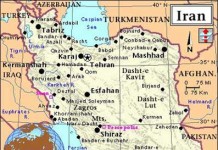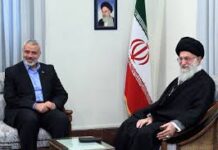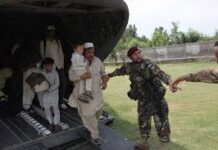
Context
Never before have there been so many conflicts been brewing at the same time, in particular in the regions of Middle East – and the adjoining areas of South Asia and North Africa. There is a tendency to view these conflicts as separate with their individual dynamics. However, they are intertwined and there is a need to understand their intersections and trajectory. In this, it’s also essential to grasp the mega trends and how they are linking these otherwise desperate conflicts.
History obviously is the most important determinant, playing out over time, as different empires and nations rise and crumble. Old grudges reappear in different form as attempts are made to settle scores. Many of the present day inter-regional conflicts can be associated with the following:
- Left over business of World War II, falling empires, and end of colonialism that led to the creation of present day nation-states.
- Shifting balance of religious dominance, such as that between Judaism, Christianity, and Islam. And there are tussles with in religions for example between Shiite and Sunni Islam – spearheaded by Iran and Saudi Arabia, and joined by Turkey recently. And then there is the Eastern Orthodox Church, which Putin energizes. And more importantly, how these trend correlates with the role of religion in politics.
- War Against Extremism
- Rise and fall of different political and economic systems: from communism to capitalism – and from authoritarianism to democracy etc.
- Struggle for the balance of power and resources between the regional and global powers, which is now taking place in a setting of climate change and Coronavirus pandemic.
The Corona Factor
While most of the characteristics laid out above represent a consistent part of the cycle of change and conflict as the world knows them. However, it is the climate change, and now the Coronavirus, that have seriously altered the dynamics and the struggle for the balance of power and resources.
Balance between Liberals and Conservatives and Nationalists
In many parts of the Islamic world, economies had already been suffering under the corrupt rulers, often supported by the West. These governments have focused most of their efforts on self-preservation than on the uplift of the masses. In the war against extremism with extraordinary focus on security, the fiscal systems have been further destabilized. This has lead to increased internal polarization, in which the space for liberals has been continually shrinking while the conservatives and nationalists are consistently on the rise, which also translates in to a growing role for religion in politics and governance.
Public versus Private Government Stances
In their efforts to promote their reign and retain western support, the leadership of these nations often went against the very fabric of public sentiment. This caused them to keep their political dealings private – away from the scrutiny of the public. This was the case during the Musharraf era and subsequent political set-ups in Pakistan that privately supported the drone strikes in the tribal areas – but publicly criticized them.
It is also true when it comes to the positions of Gulf States on sensitive matters such as the Israeli-Palestinian conflict and Kashmir. On one hand, these states have grown closer to Israel and India – while mostly remaining silent on Indian and Israeli brutalities against Kashmiri and Palestinian Muslims. While this may have gained them temporary allocates in the West – the long-term implications of such policies are serious, and the gap between their public and private stances have grown wider and in some cases becoming unsustainable.
This divergence is even visible in the treatment of Uighur Muslims in China or when it came to Russian activities in Chechnya and Dagestan. Muslim states have kept quite on these maters because their national interests often converge with Russia and China on other important issues. Moreover, in the aftermath of 9/11 many movements and abuses of human rights have been conveniently lumped in to the category of extremism.
Political Governance
Added to this maze is the dynamics of Coronavirus. The dysfunctional systems in many of these nations were hardly able to deliver during normal times – let alone during the uncertain present. Moreover, the elongated war against extremism and prevalent corruption have eaten up and eroded the moral compass of these societies. With declining economies, the liberal and the ruling class are likely to be increasingly in the eye of the storm – as they are unable to deliver on the most basic services and provide security and opportunities for their citizens. This will push government to take on even more nationalistic and conservative stances.
In the long run, this will likely lead to more protests and upheavals, as the voices and messages of the extreme factions are gaining traction. We saw a glimpse of this even in the developing world, where the death of George Floyd at the hands of the police in the US led to the unleashing of long pent-up grievances.
Conclusion
As the economies crumble under the weight of COVID-19, many nations are unlikely to survive the Coronavirus induced struggles for the balance of power. Moreover, the fiscal pressures are likely to promote fissures along racial and religious lines. These outcomes will aggravate the tussles of new winners and losers – that will emerge as the tentacles of the virus spread wider and deeper.
This is amply at display in places like Lebanon and Jordan, with large refugee populations. According to World Bank estimate the tourism has dropped by almost 50 percent in Jordan, which constitutes almost 14 percent of its GDP. Moreover, with the return of many expatriates employed in the Gulf region, it has seriously impacted the inflow of foreign remittances. With the drop in oil revenues, it’s unclear if the oil rich Arab nations will be able to continue funding the geopolitical games in Yemen, Iraq, Lebanon, Syria, and Libya.
Moreover, it would be difficult for these governments to maintain their previous private stances, especially if India and Israel were to move forward with unilateral moves – like India displayed last year by abolishing the special status of Kashmir, and through possible West Bank annexation by Israel. And in this context, as the Coronavirus induced economic vows become more transparent; the political and governance challenges will manifold posing grave risks to the internal stability and state viability.



